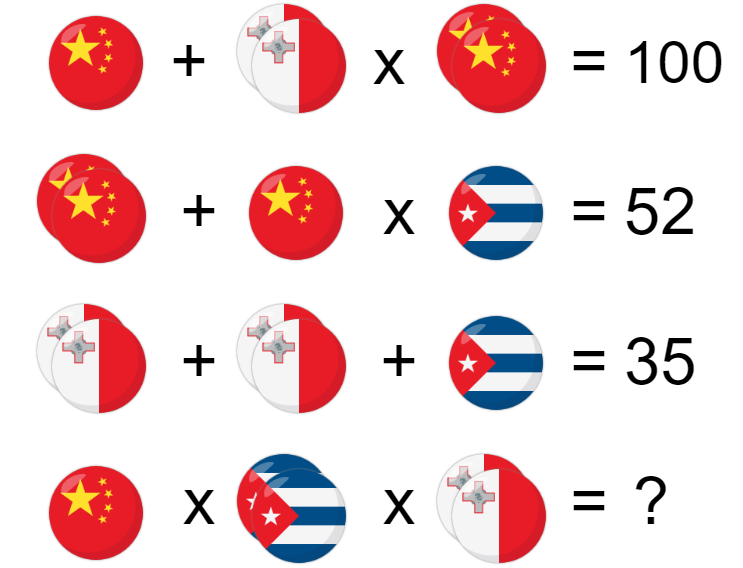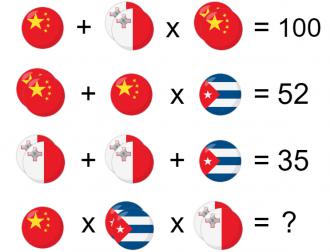Can you replace the question mark with a number?
MATH PUZZLE: Can you replace the question mark with a number?
Husband Worried Wife's Temper
A man goes to the doctor, worried about his wife's temper.
The doctor asks, “What’s the problem?”The man says, “Doctor, I don’t know what to do.
Every day my wife seems to lose her temper for no reason. It scares me.”
The doctor says, “I have a cure for that. When it seems that your wife is getting angry, just take a glass of water and start swishing it in your mouth.
Just swish and swish but don’t swallow it until she either leaves the room or calms down.”
Two weeks later, the man comes back to the doctor looking fresh and reborn.
The man says, “Doctor, that was a brilliant idea! Every time my wife started losing it, I swished with water.
I swished and swished, and she calmed right down! How does a glass of water do that?”
The doctor says, “The water itself does nothing. It’s keeping your mouth shut that does the trick.”

